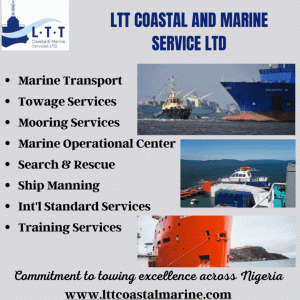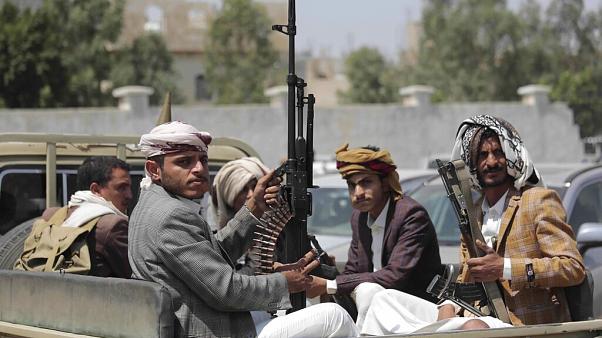Archives
SYRIA: Aleppo on the brink of humanitarian disaster
The International Committee of the Red Cross (ICRC) on Thursday raised the alarm, having noted that the intense battles raging in Aleppo and, which have seen a key hospital destroyed with significant loss of life, is now, putting millions at grave risk.
The ICRC theatre observer, in Damascus, Valter Gros, also highlighted that by the rate at which mortars are exploding, nowhere appears safe any longer.
“Wherever you are, you hear explosions of mortars, shelling and planes flying over,” said Valter Gros, who heads the ICRC’s office there.
“There is no neighbourhood of the city that hasn’t been hit. People are living on the edge. Everyone here fears for their lives and nobody knows what is coming next.”
Amid the escalating fighting over the past week, the Al Quds hospital in eastern Aleppo city was completely destroyed overnight, killing several people and depriving many more of lifesaving medical care.
“The recent attack on the ICRC-supported Quds hospital is unacceptable and sadly this is not the first time the lifesaving medical services have been hit,” said Marianne Gasser, head of the ICRC mission in Syria.
“We urge all the parties to spare the civilians. Don’t attack hospitals, don’t use weapons that cause widespread damage. Otherwise, Aleppo will be pushed further to the brink of humanitarian disaster.”
Aleppo is the second largest city in Syria and one of the worst affected in the past five years of conflict.
Large parts of the city have been destroyed, and infrastructure severely damaged, leaving civilians without water and electricity for months. Escalating violence is putting millions, many of whom are displaced and living close to frontlines, at grave risk and without a chance of getting much-needed aid.
The ICRC and the Syrian Arab Red Crescent (SARC) have been supporting most of Aleppo’s medical facilities on both sides of the frontline with medicines, equipment and the provision of clean water.
The ongoing support provided to shelters for displaced, collective kitchens and water infrastructure risks being disrupted if the fighting escalates.
Recently, the ICRC and SARC managed to provide contingency food and medical aid on both sides of the city. However, the recent escalation in fighting means these stocks, that are expected to run out soon, cannot be replenished.

Archives
WAIVER CESSATION: Igbokwe urges NIMASA to evolve stronger collaboration with Ships owners

…Stresses the need for timely disbursement of N44.6billion CVFF***
Highly revered Nigerian Maritime Lawyer, and Senior Advocate of Nigeria (SAN), Mike Igbokwe has urged the Nigeria Maritime Administration and safety Agency (NIMASA) to partner with ship owners and relevant association in the industry to evolving a more vibrant merchant shipping and cabotage trade regime.
Igbokwe gave the counsel during his paper presentation at the just concluded two-day stakeholders’ meeting on Cabotage waiver restrictions, organized by NIMASA.
“NIMASA and shipowners should develop merchant shipping including cabotage trade. A good start is to partner with the relevant associations in this field, such as the Nigeria Indigenous Shipowners Association (NISA), Shipowners Association of Nigeria (SOAN), Oil Trade Group & Maritime Trade Group of the Nigerian Association of Chambers of Commerce, Industry, Mines and Agriculture (NACCIMA).
“A cursory look at their vision, mission and objectives, show that they are willing to improve the maritime sector, not just for their members but for stakeholders in the maritime economy and the country”.
Adding that it is of utmost importance for NIMASA to have a through briefing and regular consultation with ships owners, in other to have insight on the challenges facing the ship owners.
“It is of utmost importance for NIMASA to have a thorough briefing and regular consultations with shipowners, to receive insight on the challenges they face, and how the Agency can assist in solving them and encouraging them to invest and participate in the maritime sector, for its development.
“NIMASA should see them as partners in progress because, if they do not invest in buying ships and registering them in Nigeria, there would be no Nigerian-owned ships in its Register and NIMASA would be unable to discharge its main objective.
The Maritime lawyer also urged NIMASA to disburse the Cabotage Vessel Financing Fund (CVFF)that currently stands at about N44.6 billion.
“Lest it be forgotten, what is on the lips of almost every shipowner, is the need to disburse the Cabotage Vessel Financing Fund (the CVFF’), which was established by the Coastal and Inland Shipping Act, 2003. It was established to promote the development of indigenous ship acquisition capacity, by providing financial assistance to Nigerian citizens and shipping companies wholly owned by Nigerian operating in the domestic coastal shipping, to purchase and maintain vessels and build shipping capacity.
“Research shows that this fund has grown to about N44.6billion; and that due to its non-disbursement, financial institutions have repossessed some vessels, resulting in a 43% reduction of the number of operational indigenous shipping companies in Nigeria, in the past few years.
“Without beating around the bush, to promote indigenous maritime development, prompt action must be taken by NIMASA to commence the disbursement of this Fund to qualified shipowners pursuant to the extant Cabotage Vessel Financing Fund (“CVFF”) Regulations.

“Indeed, as part of its statutory functions, NIMASA is to enforce and administer the provisions of the Cabotage Act 2003 and develop and implement policies and programmes which will facilitate the growth of local capacity in ownership, manning and construction of ships and other maritime infrastructure. Disbursing the CVFF is one of the ways NIMASA can fulfill this mandate.
“To assist in this task, there must be collaboration between NIMASA, financial institutions, the Minister of Transportation, as contained in the CVFF Regulations that are yet to be implemented”, the legal guru highlighted further.
He urged the agency to create the right environment for its stakeholders to build on and engender the needed capacities to fill the gaps; and ensure that steps are being taken to solve the challenges being faced by stakeholders.
“Lastly, which is the main reason why we are all here, cessation of ministerial waivers on some cabotage requirements, which I believe is worth applause in favour of NIMASA.
“This is because it appears that the readiness to obtain/grant waivers had made some of the vessels and their owners engaged in cabotage trade, to become complacent and indifferent in quickly ensuring that they updated their capacities, so as not to require the waivers.
“The cessation of waivers is a way of forcing the relevant stakeholders of the maritime sector, to find workable solutions within, for maritime development and fill the gaps in the local capacities in 100% Nigerian crewing, ship ownership, and ship building, that had necessitated the existence of the waivers since about 15 years ago, when the Cabotage Act came into being.
“However, NIMASA must ensure that the right environment is provided for its stakeholders to build and possess the needed capacities to fill the gaps; and ensure that steps are being taken to solve the challenges being faced by stakeholders. Or better still, that they are solved within the next 5 years of its intention to stop granting waivers”, he further explained.
Archives
Breaking News: The Funeral Rites of Matriarch C. Ogbeifun is Live
The Burial Ceremony of Engr. Greg Ogbeifun’s mother is live. Watch on the website: www.maritimefirstnewspaper.com and on Youtube: Maritimefirst Newspaper.
Archives
Wind Farm Vessel Collision Leaves 15 Injured

…As Valles Steamship Orders 112,000 dwt Tanker from South Korea***
A wind farm supply vessel and a cargo ship collided in the Baltic Sea on Tuesday leaving 15 injured.
The Cyprus-flagged 80-meter general cargo ship Raba collided with Denmark-flagged 31-meter wind farm supply vessel World Bora near Rügen Island, about three nautical miles off the coast of Hamburg.
Many of those injured were service engineers on the wind farm vessel, and 10 were seriously hurt.
They were headed to Iberdrola’s 350MW Wikinger wind farm. Nine of the people on board the World Bora were employees of Siemens Gamesa, two were employees of Iberdrola and four were crew.
The cause of the incident is not yet known, and no pollution has been reported.
After the collision, the two ships were able to proceed to Rügen under their own power, and the injured were then taken to hospital.
Lifeboat crews from the German Maritime Search and Rescue Service tended to them prior to their transport to hospital via ambulance and helicopter.
“Iberdrola wishes to thank the rescue services for their diligence and professionalism,” the company said in a statement.
In the meantime, the Hong Kong-based shipowner Valles Steamship has ordered a new 112,000 dwt crude oil tanker from South Korea’s Sumitomo Heavy Industries Marine & Engineering.
Sumitomo is to deliver the Aframax to Valles Steamship by the end of 2020, according to data provided by Asiasis.
The newbuild Aframax will join seven other Aframaxes in Valles Steamship’s fleet. Other ships operated by the company include Panamax bulkers and medium and long range product tankers.
The company’s most-recently delivered unit is the 114,426 dwt Aframax tanker Seagalaxy. The naming and delivery of the tanker took place in February 2019, at Namura Shipbuilding’s yard in Japan.
Maritime Executive with additional report from World Maritime News




























